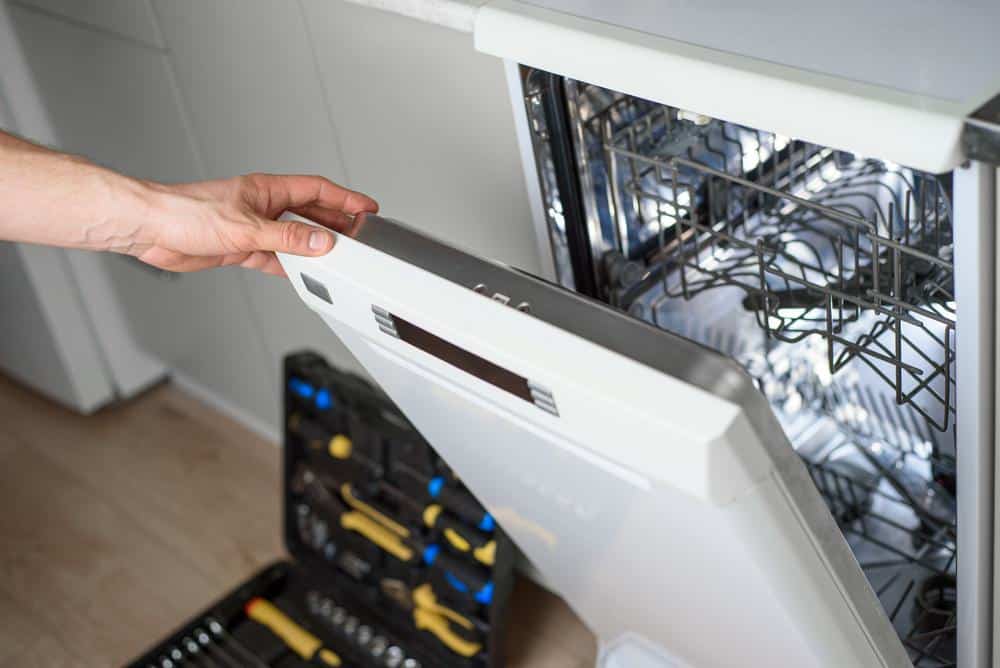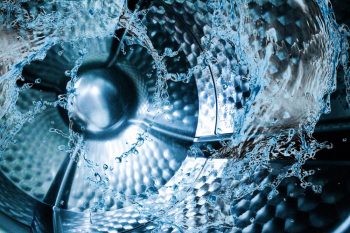
In our daily lives, we frequently come across common household terms that we take for granted. One such term is “dishwasher salt”. But what exactly is dishwasher salt? How does it work? Why is it necessary? In this comprehensive guide, we’ll answer all these questions and more.
Dishwasher salt is a specific type of granulated, crystalline sodium chloride. It’s used to soften hard water in your dishwasher, which helps to prevent limescale build-up and ensures your dishes are cleaned effectively. Unlike table salt, dishwasher salt has larger granules and doesn’t contain any additives, making it safe for your dishwasher’s mechanical components.
What is Dishwasher Salt?
Dishwasher salt is a specific grade of granulated, crystalline sodium chloride. It’s designed to regenerate the water softener circuit of your dishwasher, whether it’s a household or industrial model. Dishwasher salt aids in softening hard water by regenerating ion exchange resins, which expel trapped calcium and magnesium ions that cause hard water.
Unlike table salt, dishwasher salt granules are larger, ensuring they dissolve slowly and don’t block your dishwasher’s softener unit. It’s important to note that dishwasher salt is not food grade, meaning it may contain non-edible elements and therefore, should not be used for cooking.
The Science Behind Dishwasher Salt
Dishwasher salt works by bonding with calcium and magnesium ions present in hard water. This process renders these ions harmless, leading to cleaner dishes, a longer-lasting dishwasher, and spot-free glassware.
In countries like those in Europe, where hard water is common, dishwashers often come with built-in water softeners. These appliances require the use of dishwasher salt, which is 100% sodium chloride without any additives.
The Difference Between Dishwasher Salt and Table Salt
Table salt and dishwasher salt are both forms of sodium chloride. However, their granule sizes and additive content differ. Table salt has smaller granules and often contains anti-caking compounds like magnesium. These additives can interfere with your dishwasher’s mechanical components and promote hard water stains.
On the other hand, dishwasher salt, with its larger, coarser granules, is designed to dissolve slowly and prevent blockages in your dishwasher’s softener system.
The Importance of Using Dishwasher Salt
Ignoring the use of dishwasher salt can lead to potential issues such as limescale buildup, reduced cleaning effectiveness, clogs and blockages, and even damage to the water softening system. Using table salt as a replacement can corrode pipes and cause clogs, potentially damaging the machine.
How to Add Dishwasher Salt to Your Dishwasher
Adding dishwasher salt to your dishwasher is a straightforward process. Simply locate the salt reservoir, usually found at the bottom of the dishwasher, unscrew the cap, and pour in the dishwasher salt until it’s full. Securely screw the cap back on, replace the bottom rack and you’re ready to go.
Best Dishwasher Salt Brands
There are several reliable dishwasher salt brands available in the market. Some of the top recommendations include Miele Dishwasher Reactivation Salt, Finish Dishwasher Salt, Aromasong Dishwasher Salt, 4.7 LB Premium Dishwasher Salt, and All-Natural Water Softener Salt.
In conclusion, dishwasher salt plays a crucial role in maintaining the efficiency of your dishwasher and the cleanliness of your dishes. By understanding what dishwasher salt is and how it works, you can ensure that your dishwasher runs optimally and your dishes come out spotless every time.
Frequently Asked Questions
How often should I add dishwasher salt to my dishwasher?
The frequency of adding dishwasher salt to your dishwasher depends on the hardness of your water and how often you use your dishwasher. Typically, it’s recommended to refill the salt every 1-2 months. However, most modern dishwashers have an indicator light that will alert you when it’s time to add more salt.
Can I use sea salt or rock salt instead of dishwasher salt?
No, sea salt and rock salt are not suitable replacements for dishwasher salt. They often contain impurities and anti-caking agents that can damage your dishwasher’s water softening system. It’s best to use a salt specifically designed for dishwashers.
What happens if I run my dishwasher without dishwasher salt?
If you run your dishwasher without dishwasher salt, the water softening system may not work effectively. This can result in limescale buildup, less efficient cleaning, and potential damage to your dishwasher over time.
Is dishwasher salt safe for septic systems?
Yes, dishwasher salt is safe for septic systems. The sodium chloride in dishwasher salt does not harm the bacteria in septic systems or cause any damage.
Is dishwasher salt the same as water softener salt?
No, dishwasher salt and water softener salt are not the same. While both are forms of sodium chloride and used to soften water, they are designed for different purposes. Water softener salt is used for whole-house water softening systems, while dishwasher salt is specifically for dishwashers. They are not interchangeable.












